Are you interested in exploring historic homes? Here are the must-see historic houses in Mecklenburg-Vorpommern:
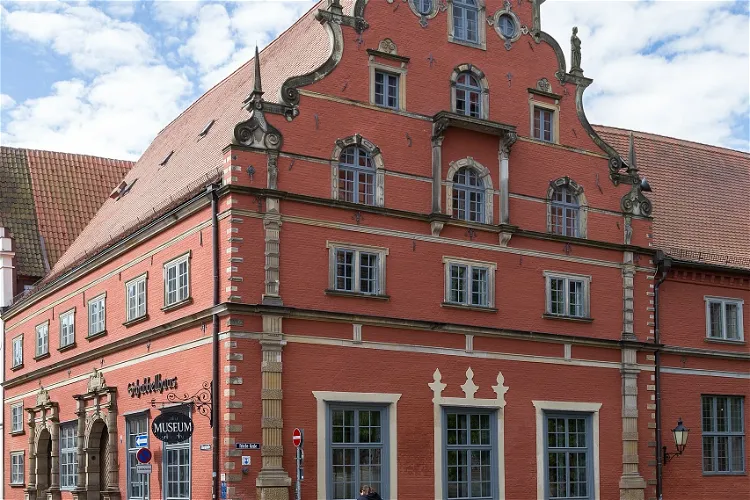
City History Museum of Wismar
WismarThe City History Museum of the Hanseatic City of Wismar is situated in the historic Schabbellhaus, located at Schweinsbrücke No. 6 and 8 in Wismar-Altstadt. This building is a protected monument, adding to its historical significance and charm.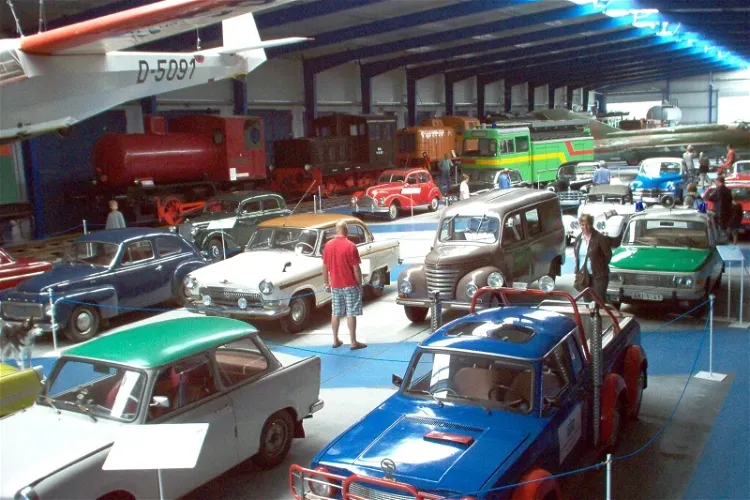
Oldtimer Museum Rügen
BinzThe Oldtimer Museum Rügen, formerly known as the Rügen Railway and Technology Museum, is a unique destination for railway enthusiasts and history buffs. Located on the picturesque Baltic Sea island resort of Rügen in Mecklenburg-Western Pomerania, Germany, the museum offers a deep dive into the history and evolution of railway technology in Germany.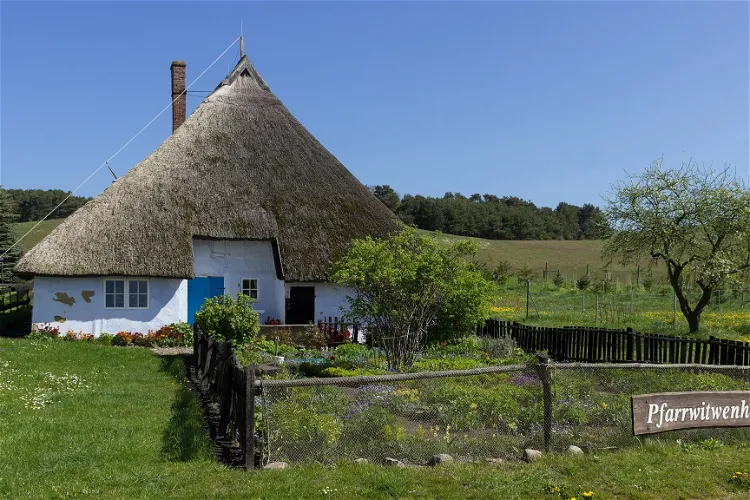
Pfarrwitwenhaus
MönchgutThe Pfarrwitwenhaus Groß Zicker is a significant historical site located in Groß Zicker, a village that is part of the Mönchgut municipality in the southeast of the island of Rügen. Constructed in 1719/20, it stands as one of the oldest residential buildings on Rügen, offering a glimpse into the architectural style and living conditions of the past.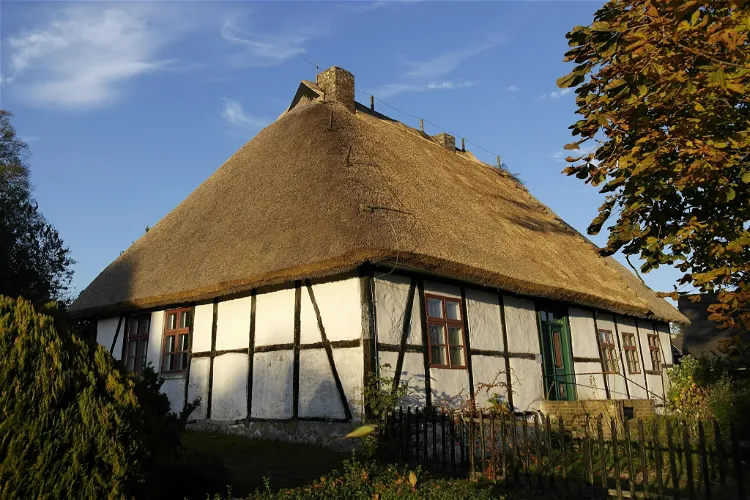
Schulmuseum Middelhagen
MönchgutThe Schulmuseum Middelhagen is a museum that focuses on the history of education on the Mönchgut peninsula. It is situated in Middelhagen, a village on the island of Rügen. The museum provides a unique insight into the evolution of education in this region, making it a fascinating destination for those interested in history and education.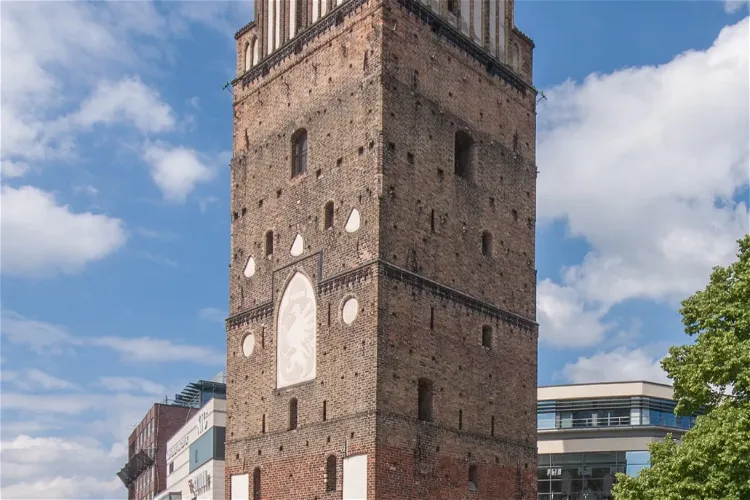
Kröpeliner Tor
RostockThe Kröpeliner Tor is a significant historical landmark in Rostock, built around 1270 in the Gothic style. It is the westernmost of the four large gates of the Rostock city fortification. This gate, with its two floors, was very large for its time and remained one of the most formidable of the city's gates.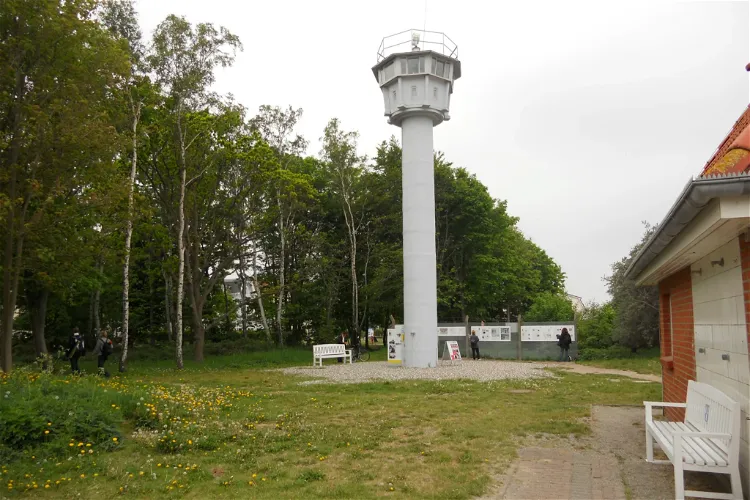
Baltic Sea watchtower
KühlungsbornThe Baltic Sea watchtower in Kühlungsborn is a significant historical site, having served as a watchtower for the East German border troops. Constructed in 1972, the tower was manned by the Coastal Brigade and is conveniently located next to the beach promenade, a short distance from the pier. This makes it an easily accessible site for tourists interested in history and the Cold War era.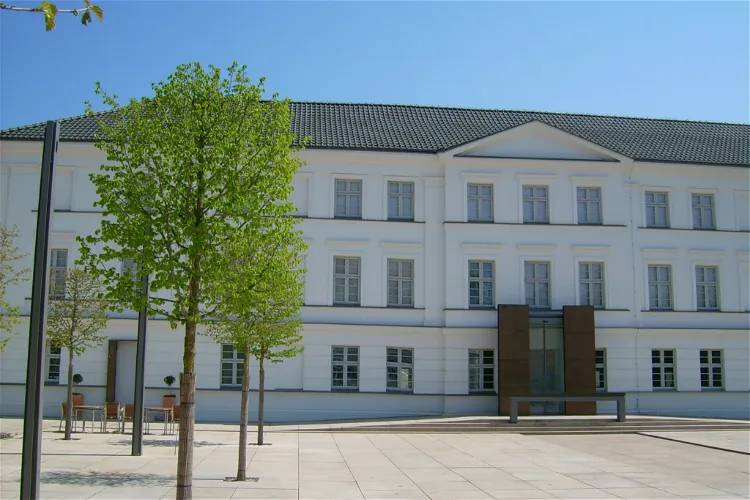
Pomeranian State Museum
GreifswaldThe Pomeranian State Museum, located in Greifswald, Western Pomerania, is a public institution that primarily focuses on the history and arts of the Pomeranian region. It provides a comprehensive insight into the cultural heritage of the area, making it a significant destination for those interested in understanding the historical and artistic context of Pomerania.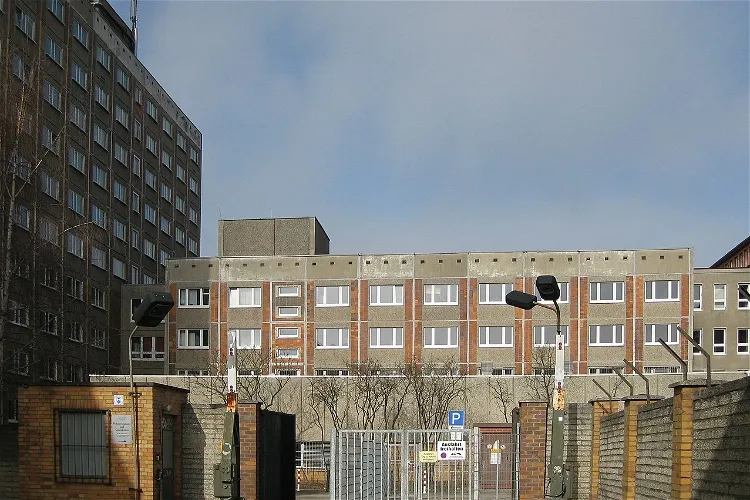
Dokumentations- und Gedenkstätte für Opfer deutscher Dikaturen BStU Rostock
RostockThe Documentation and Memorial Site (DuG) in Rostock is located in the former remand prison of the Stasi district administration. The site focuses on the activities of the Ministry for State Security (MfS) of the GDR and serves as a memorial to its victims. This historical site provides a unique insight into the operations of the MfS and the impact it had on the lives of the people during the GDR era.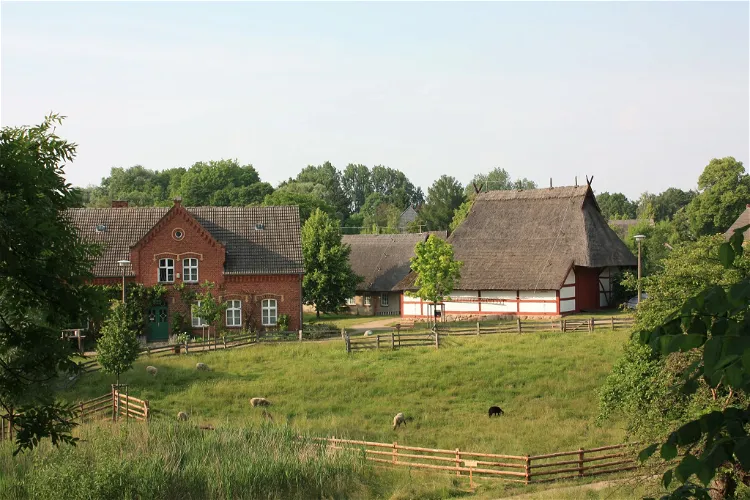
Open Air Museum of Ethnography Schwerin Mueß
SchwerinThe Open Air Museum Schwerin-Mueß is situated in the former fishing and farming village of Mueß, which was incorporated into the city of Schwerin in 1936. This location provides a unique historical context for the museum, as it is directly on the southern shore of Lake Schwerin. The museum's setting in a traditional village environment enhances the authenticity of the exhibits and provides a real sense of the rural life in Mecklenburg from the 17th to the early 20th century.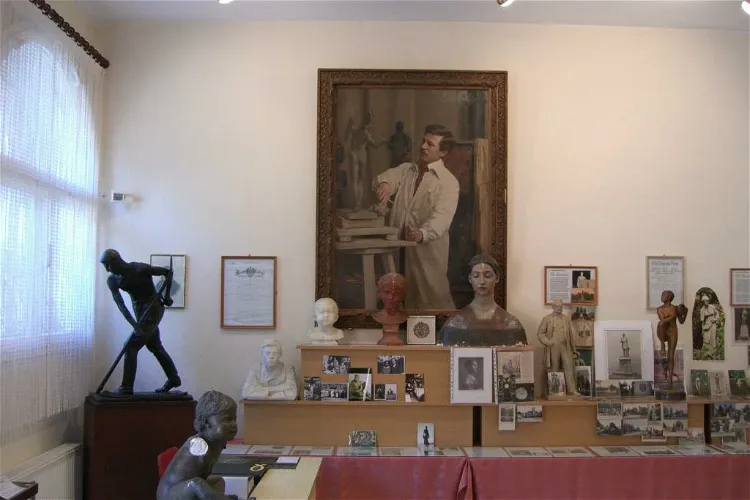
Bildhauermuseum Prof. Wandschneider
Plau am SeeThe Bildhauermuseum Prof. Wandschneider, located in the city of Plau am See, was established in 1994. It is dedicated to documenting the life and work of the local sculptor Wilhelm Wandschneider, who lived from 1866 to 1942. The museum provides a comprehensive insight into the artist's life and his artistic creations.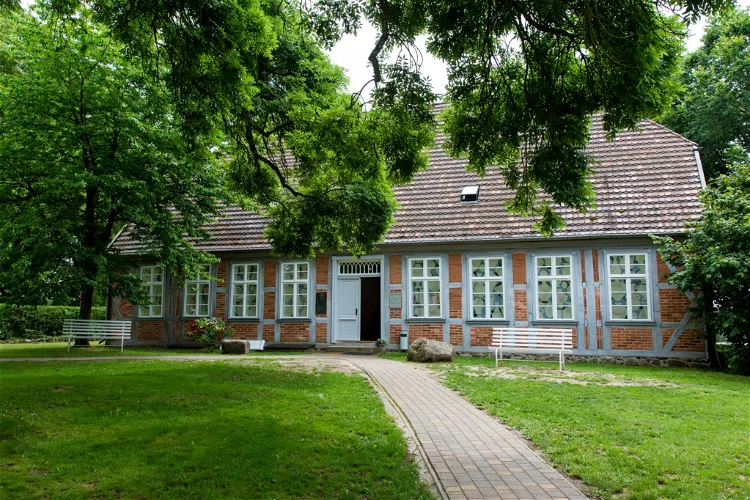
Heinrich Schliemann Museum
AnkershagenThe Heinrich Schliemann Museum in Ankershagen is a tribute to the life and work of Heinrich Schliemann, a renowned merchant and archaeologist. The museum is housed in the former parsonage of the town, where Schliemann spent his childhood years. It offers a unique insight into the life and times of this influential figure, making it a worthwhile destination for those interested in history and archaeology.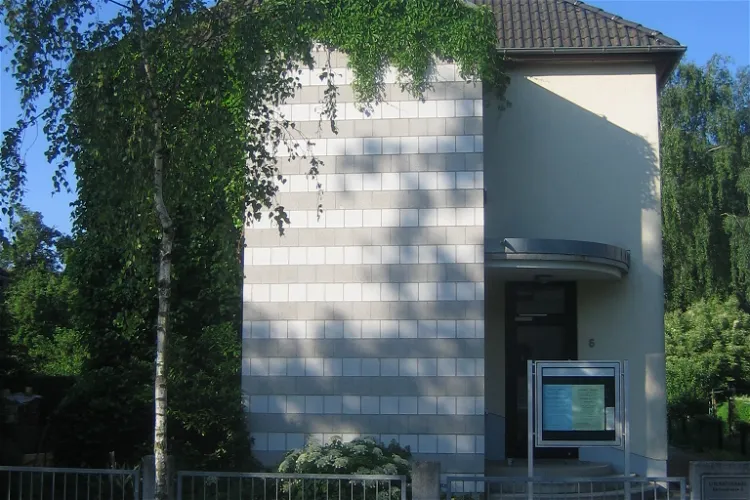
Literaturzentrum Neubrandenburg e.V
NeubrandenburgThe Brigitte-Reimann-Literaturhaus, located at Gartenstraße 6 in Neubrandenburg, is a literature center in Mecklenburg-Vorpommern. It was temporarily closed in late August 2009 due to withheld funding of €10,000 from the Schwerin Ministry of Culture. However, it reopened in November 2009 after the sponsoring association, Literaturzentrum Neubrandenburg e.V., and the Ministry of Culture reached a provisional agreement.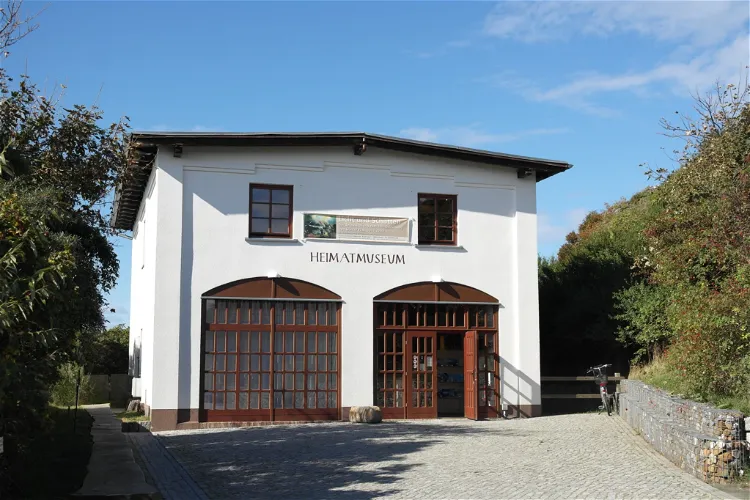
Heimatmuseum Hiddensee
Insel HiddenseeThe Heimatmuseum Hiddensee is one of the two museums located in the Kloster district on the island of Hiddensee. It shares this distinction with the Gerhart-Hauptmann-Museum. Both museums offer unique insights into the history and culture of the island, making them significant points of interest for visitors.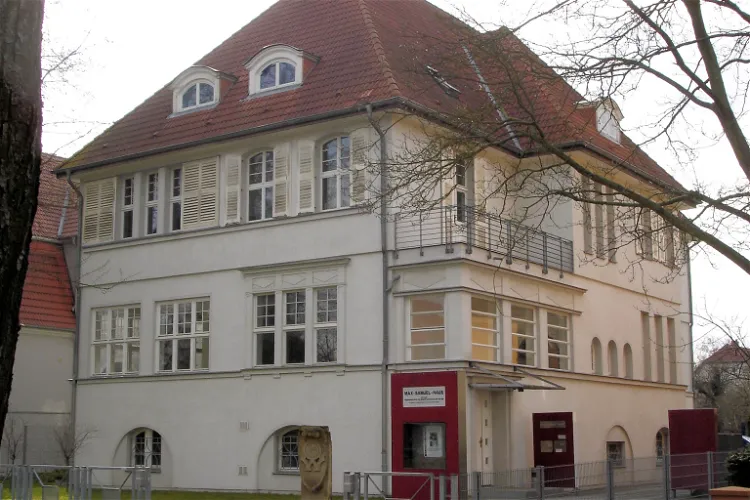
Max-Samuel-Haus
RostockThe Max-Samuel-Haus, located in Rostock, is a villa that has been home to the Foundation for Jewish History and Culture in Rostock since 1991. This historic building serves as a meeting place for cultural events such as readings, exhibitions, and concerts. It also houses an extensive library offering literature on Jewish history and culture.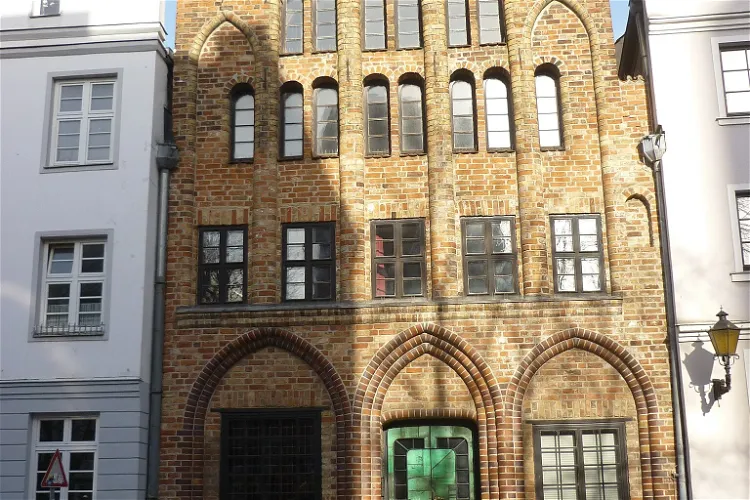
Hausbaumhaus
RostockThe Hausbaumhaus is conveniently located in the city center of Rostock, at Wokrenterstraße 40. The street runs in a north-south direction between Lange Straße and Am Strande street. It's important to note that the Hausbaumhaus can only be reached on foot from Lange Straße, which adds to the charm and historical authenticity of the area.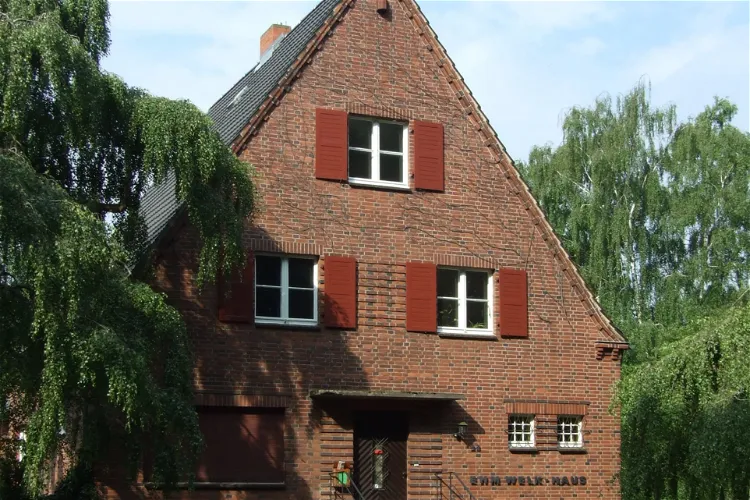
Ehm Welk-Haus
Bad DoberanThe Ehm Welk-Haus in Bad Doberan, once the residence of the writer Ehm Welk, is a cultural meeting place today. This simple single-family house made of red clinker bricks stands as a testament to the writer's life and work. It offers a unique opportunity to delve into the world of Ehm Welk and experience the environment in which he lived and created his works.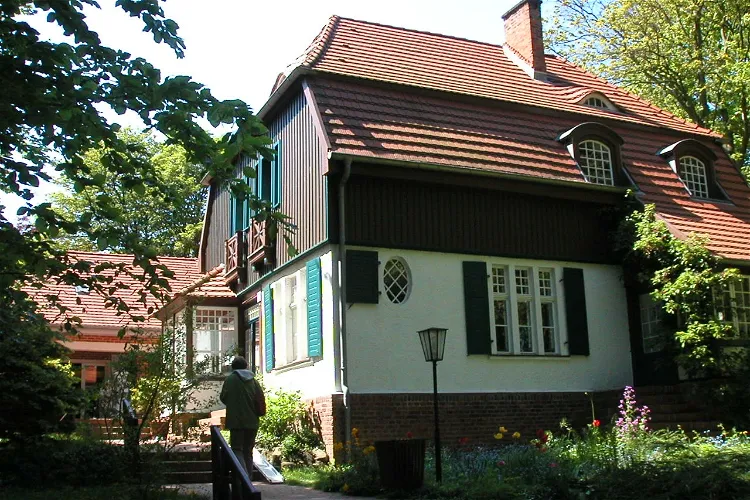
Gerhart Hauptmann Haus Hiddensee
Insel HiddenseeThe house “Seedorn” on the island of Hiddensee was purchased by Gerhart Hauptmann in 1930. He and his wife Margarete spent every summer there until 1943. This house served as a summer residence for the couple, providing a glimpse into their personal life away from the public eye.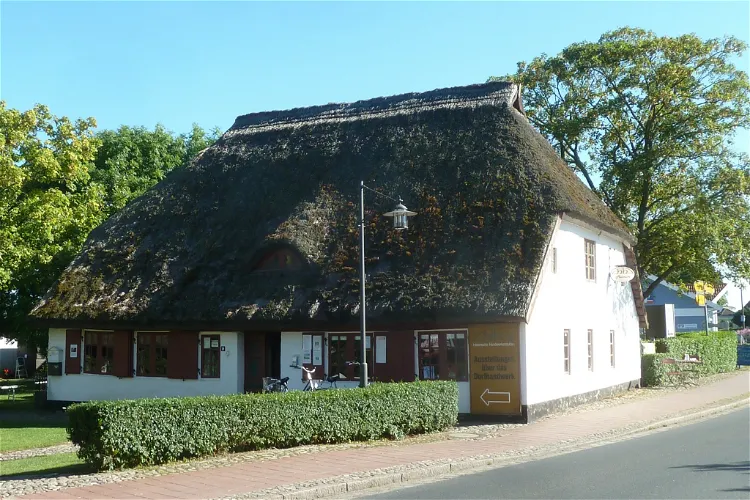
Historische Handwerkerstuben Gingst
GingstThe Museum Gingst, located in Gingst, Mecklenburg-Vorpommern, is a unique historical site that offers visitors a glimpse into the past. The museum is housed in former residential buildings that date back to the 18th century. These buildings, which are now protected as historical monuments, provide a fascinating insight into the living and working conditions on the island around 1900.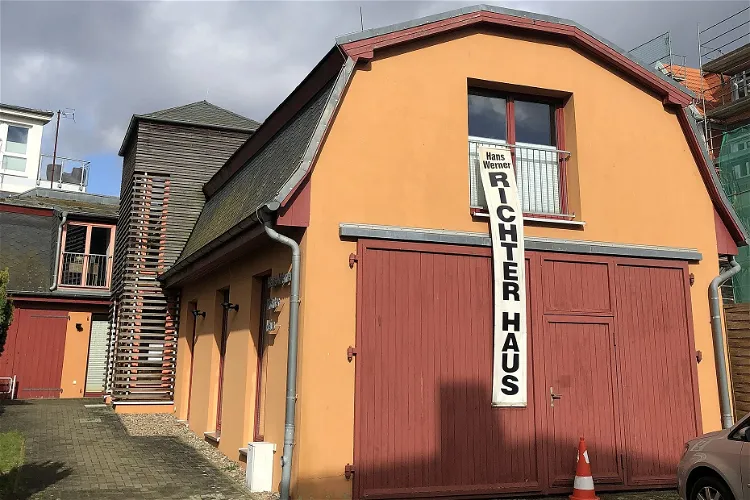
Hans Werner Richter House
BansinThe Hans-Werner-Richter-Haus is a museum and library located in the seaside resort of Bansin on the island of Usedom in Mecklenburg-Vorpommern. It is home to the estate of the Usedom writer Hans Werner Richter, who gained fame as the initiator of the writers' association Group 47. The museum provides a unique insight into the life and work of this influential writer.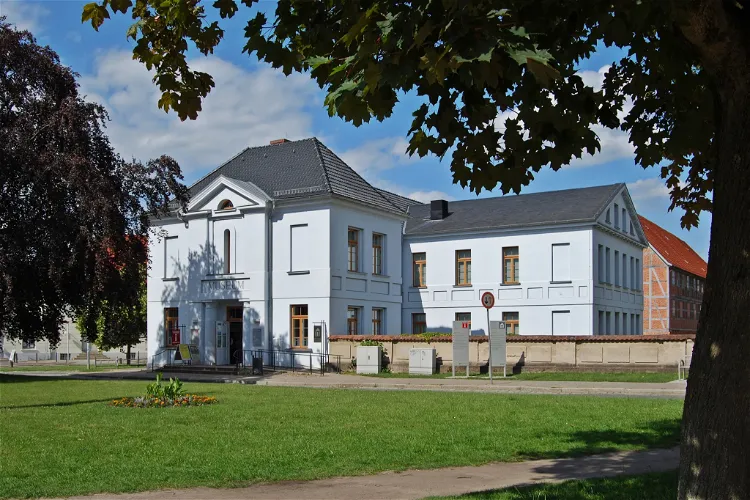
Stadtmuseum Güstrow
GüstrowThe Stadtmuseum Güstrow is situated in the city of Güstrow, at Franz-Parr-Platz 10. This location is conveniently close to other significant landmarks such as the Güstrow Castle and the Ernst-Barlach-Theater. This makes it an ideal stop for tourists who are exploring the city and its rich history.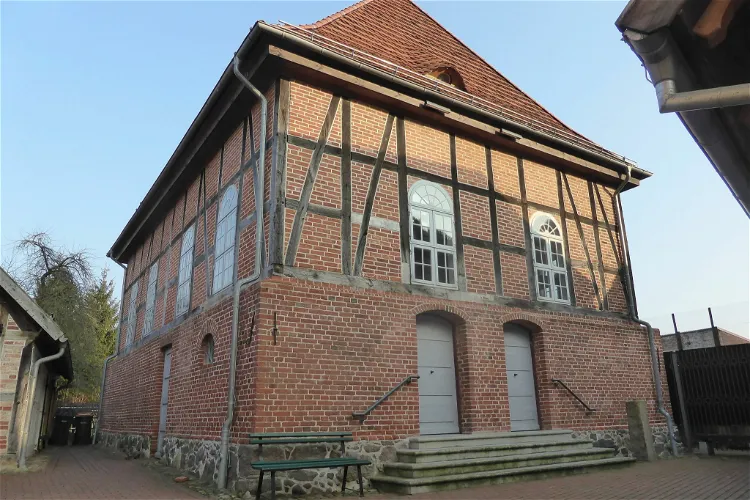
Alte Synagoge & Hanna-Meinungen-Haus
HagenowThe Alte Synagoge in Hagenow, once the religious center of the local Jewish community, has been transformed into a cultural center and part of the Hagenow local history museum. The building complex, which has been renovated since 2004, consists of the synagogue, a former community and school building with a preserved Mikveh, and a carriage shed. Today, it is known as the Hanna-Meinungen-Haus.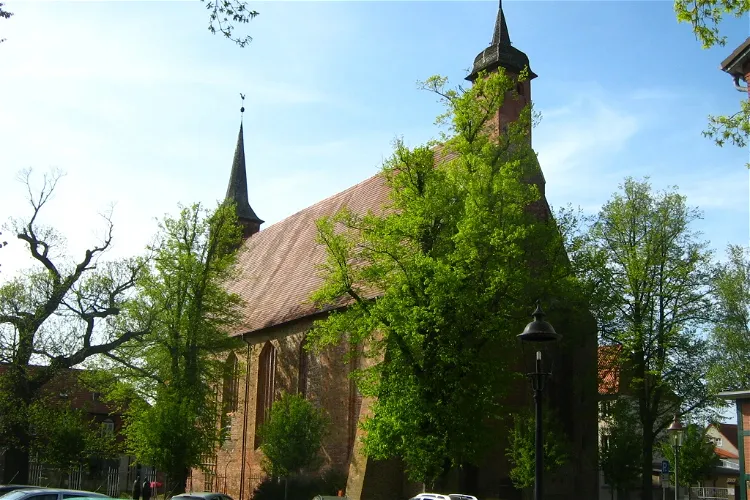
Deutsches Bernsteinmuseum
Ribnitz-DamgartenThe Deutsches Bernsteinmuseum, located in Ribnitz-Damgarten in the German state of Mecklenburg-Vorpommern, is a museum dedicated to the study and display of amber. The museum is housed in the historic Ribnitz Clarissenkloster, adding to its unique charm and appeal.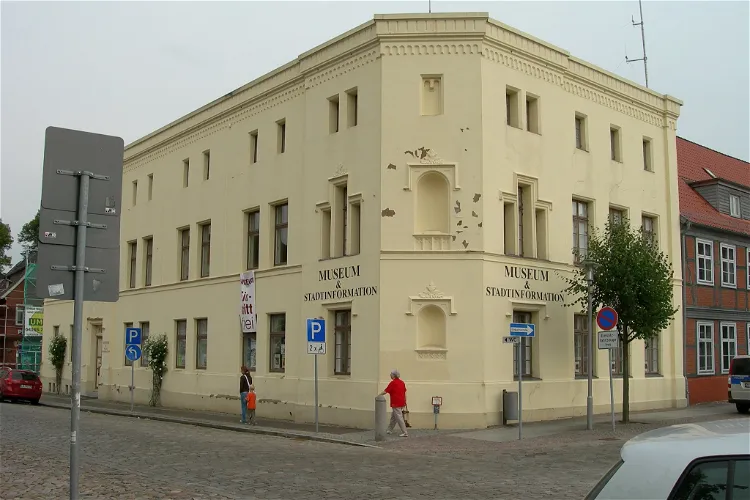
Heimatmuseum
Boizenburg/ElbeThe Heimatmuseum Boizenburg is situated in a former residential building at Markt 1, in Boizenburg/Elbe. This location adds a unique charm to the museum, as it allows visitors to experience history in a setting that was once a part of everyday life in the town.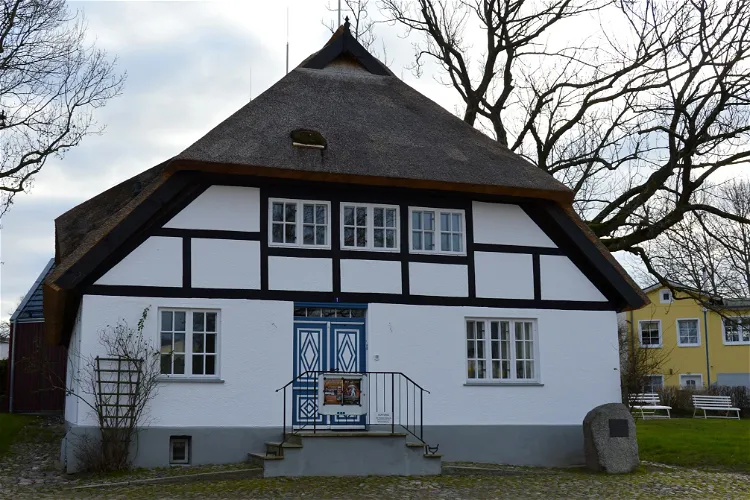
Heimatmuseum Göhren
GöhrenThe Mönchguter Heimatmuseum is a local museum situated in Göhren on the Mönchgut peninsula, which is a part of Rügen. The museum is conveniently located at the western end of Strandstraße, at the address Strandstraße 1. This location is directly at the intersection of Thiessower Straße, Poststraße, and Strandstraße, making it easily accessible for visitors.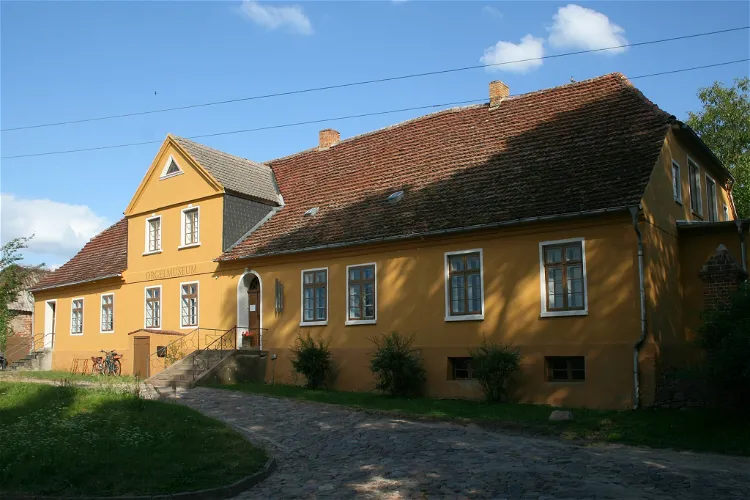
Mecklenburgisches Orgelmuseum
MalchowThe Mecklenburg Organ Museum, located in Malchow, Germany, is a unique institution dedicated to the preservation and display of church organs. Established in 1997, the museum has a rich collection of organs, many of which were rescued from dilapidated churches. The museum's primary goal is to preserve these historical instruments, making it a fascinating destination for music and history enthusiasts.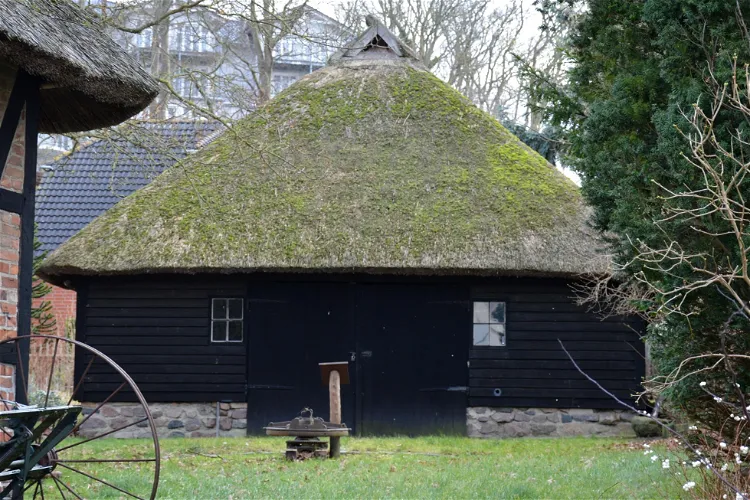
Museumshof Göhren
GöhrenMuseumshof Göhren is an open-air museum situated in the town of Göhren, on the Mönchgut peninsula, which is a part of the island of Rügen. This location offers visitors a unique opportunity to explore the rich history and culture of the region in an immersive outdoor setting.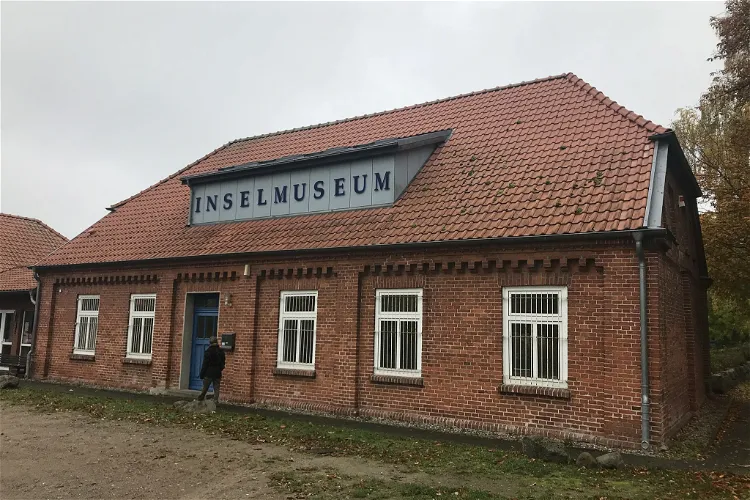
Inselmuseum Poel
KirchdorfThe Inselmuseum Poel, situated on the outskirts of Kirchdorf, is a museum dedicated to the history, culture, and nature of the island. It provides a comprehensive overview of the island's past and present, making it an ideal destination for those interested in learning more about the island's heritage.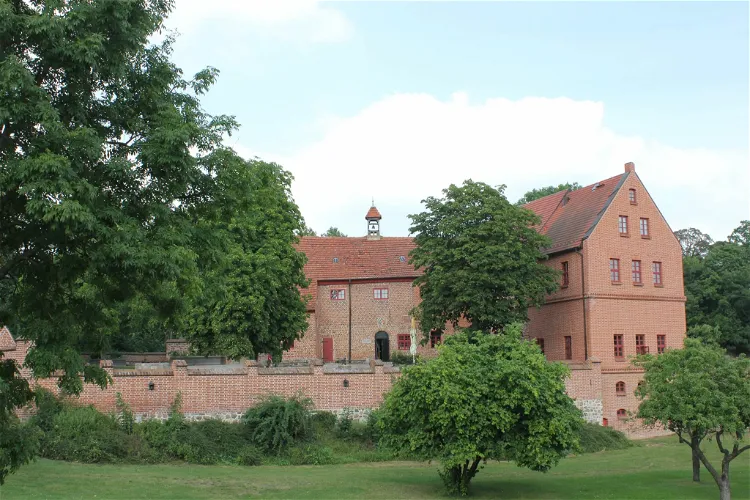
"Old Castle" Penzlin
PenzlinThe Old Castle Penzlin, situated in the city of Penzlin, southwest of Neubrandenburg in Mecklenburg-Vorpommern, is a historical site with a rich past. It offers a unique opportunity for visitors to explore the history of the region and the castle itself.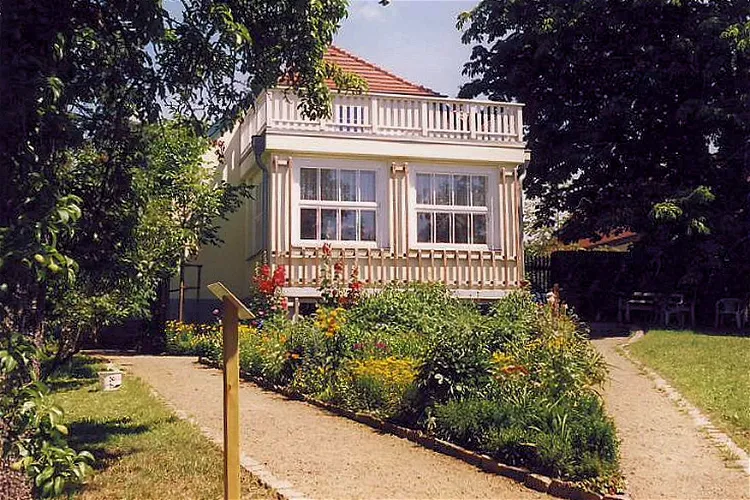
Hans-Fallada-Museum
CarwitzThe Hans-Fallada-Haus is a museum located in Carwitz, Mecklenburg-Vorpommern, dedicated to the life and works of the writer Hans Fallada. It is situated in the district of Mecklenburgische Seenplatte, a region known for its beautiful lake landscape. The museum is housed in a building that is a listed monument in the community of Feldberger Seenlandschaft.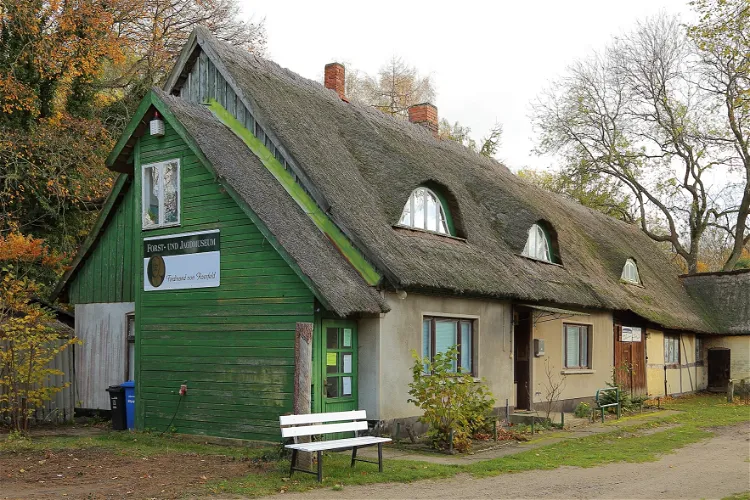
Forst- und Jagdmuseum
Born a. DarßThe Forst- und Jagdmuseum Ferdinand von Raesfeld is a museum dedicated to hunting and forestry knowledge. It is located in the district of Vorpommern-Rügen in Mecklenburg-Vorpommern, Germany. The museum is named after Ferdinand von Raesfeld, a Prussian forester, hunter, and author of standard works of German-speaking hunting literature.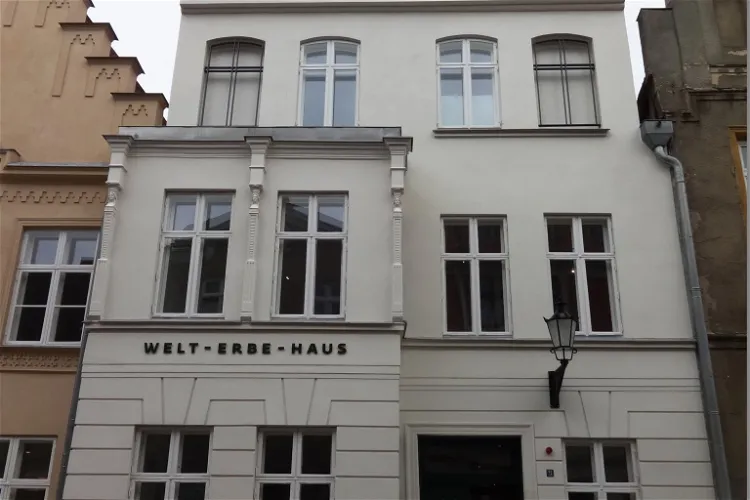
Welt-Erbe-Haus
WismarThe Welt-Erbe-Haus, a monument-protected hall house, is situated at Lübsche Straße 23 in Wismar. Since June 2014, it has been hosting a 400 m² exhibition dedicated to UNESCO World Heritage. This location offers a unique opportunity for visitors to learn about the world's cultural and natural heritage sites.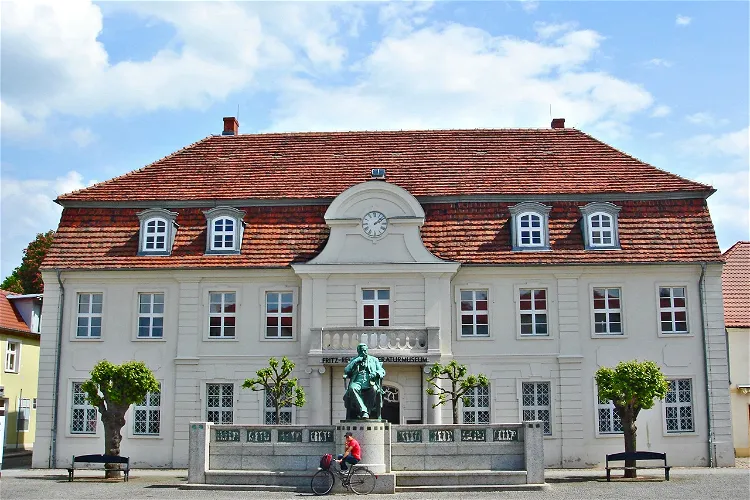
Fritz-Reuter-Literaturmuseum
StavenhagenThe Fritz-Reuter-Literaturmuseum in Stavenhagen is a museum dedicated to the life and works of Fritz Reuter, a significant writer of the Low German language. The museum is located in Reuter's birthplace, which is situated at the market square in Stavenhagen. This location adds a historical significance to the museum, making it a place of interest for tourists who are keen on literature and history.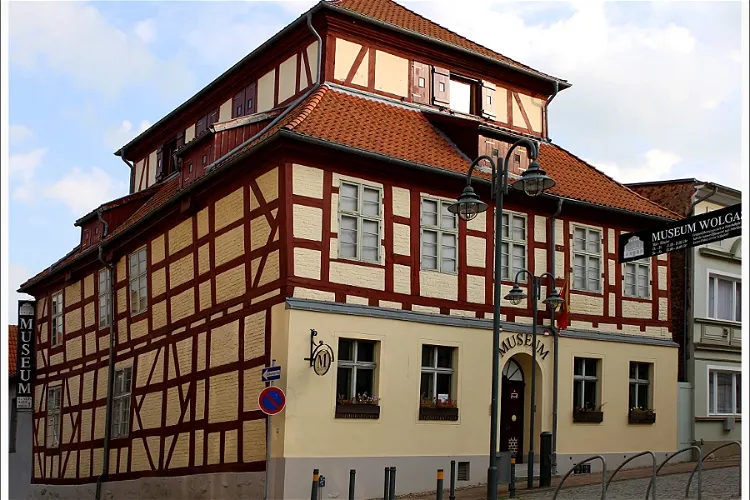
Stadtgeschichtliches Museum Kaffeemühle
WolgastThe Stadtgeschichtliches Museum, also referred to as the Kaffeemühle because of its building's unique appearance, is dedicated to showcasing the history of the Pomeranian city of Wolgast. The museum's timeline spans from the 8th century all the way to the present day, providing a comprehensive view of the city's past.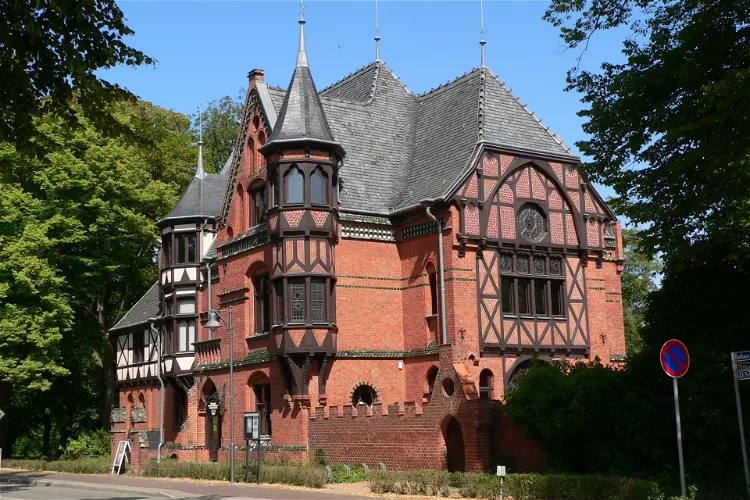
Stadt- und Bädermuseum im Möckelhaus
Bad DoberanThe Möckelhaus, situated in the city of Bad Doberan, is currently home to the City and Spa Museum. This museum is dedicated to presenting the history of the city and the seaside resort of Doberan-Heiligendamm. Visitors can explore the rich past of these locations through the museum's exhibits.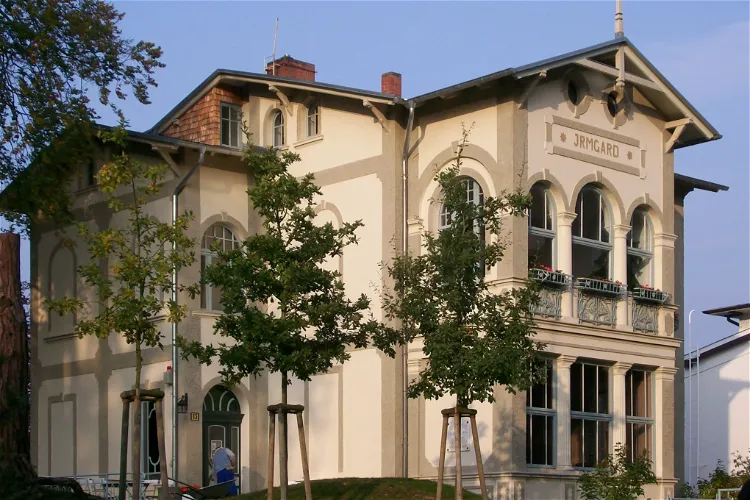
Museum Villa "Irmgard"
HeringsdorfVilla Irmgard, previously known as the Maxim Gorki Museum, is a local museum and a memorial dedicated to the Russian writer Maxim Gorki. It is situated in the Baltic Sea resort of Heringsdorf on the island of Usedom in Mecklenburg-Vorpommern. This location offers a unique blend of cultural and historical significance, making it an interesting destination for tourists interested in literature, history, and architecture.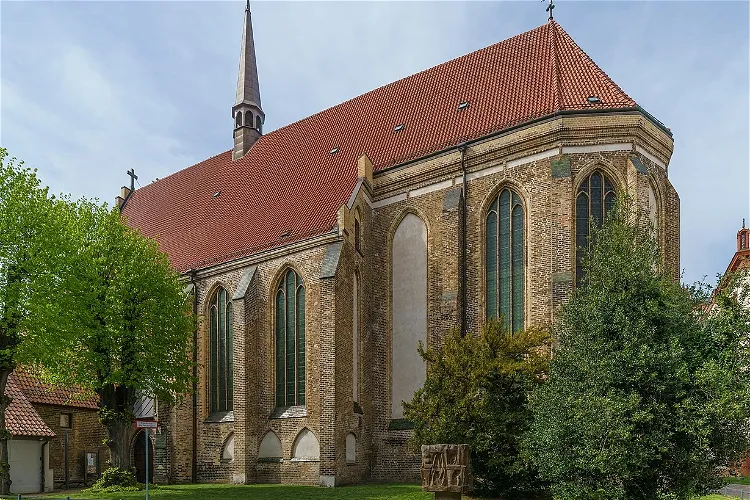
Abbey of the Holy Cross
RostockThe Abbey of the Holy Cross, located in Rostock, Germany, is a significant historical site. Founded in the 13th century by Cistercian nuns, it stands as the only fully preserved abbey in the city. This makes it a unique destination for those interested in history and architecture.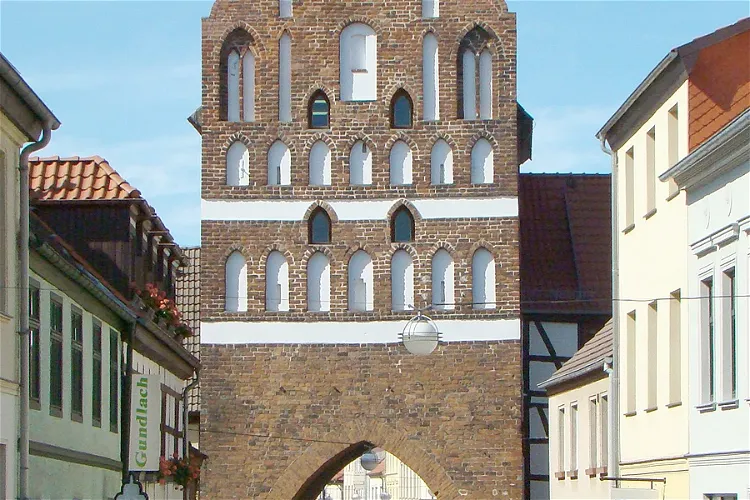
Malchiner Tor
TeterowThe Malchiner Tor has a diverse history, having served as a city prison in the 19th century. Since 1990, it has been home to the city museum. This transformation from a place of confinement to a place of learning and exploration is a fascinating aspect of the building's history that adds to its appeal for visitors.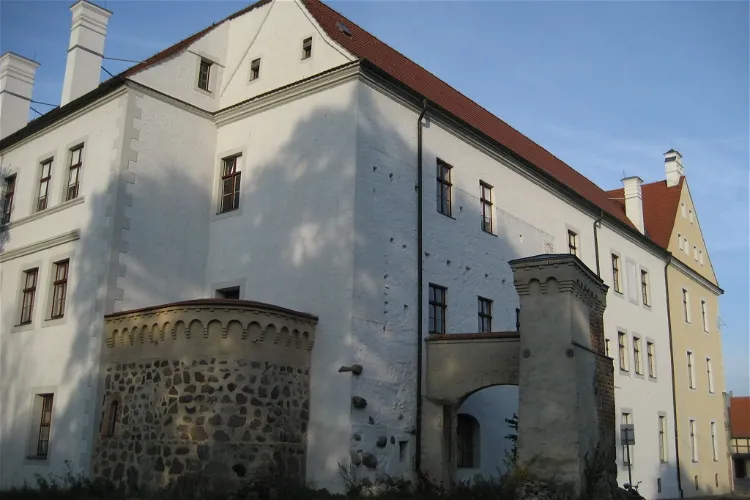
Museum und Schloss Penkun
PenkunSchloss Penkun is a castle and manor house situated in the northwest of the city, nestled between the Landesstraße 283 and the Schlosssee. This location offers a picturesque setting for visitors, with the castle's grandeur complemented by the surrounding natural beauty.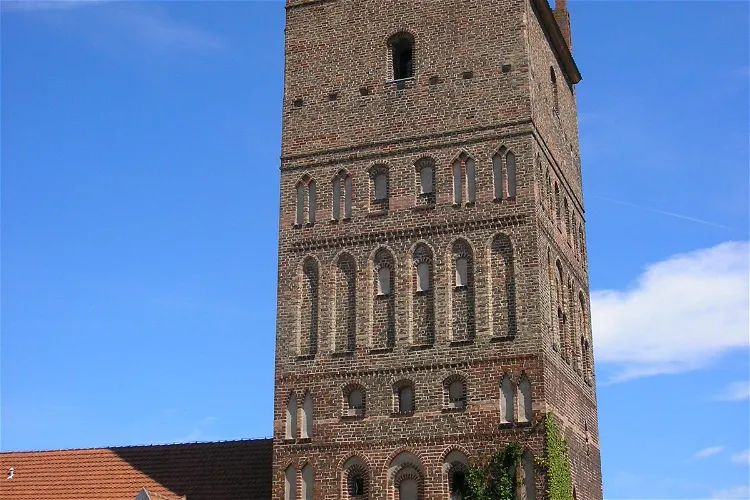
Steintor
AnklamThe Steintor, located in Anklam in the district of Vorpommern-Greifswald, has been home to the regional history museum since 1989. This historical city gate from the 13th century is a landmark of the city and the only remaining city gate of the Hanseatic city of Anklam. After extensive restoration, it has been housing the regional history museum since 1989. It is the highest city gate in Pomerania and has a stepped gable. A climb of over 111 steps offers a view of the city and the Peene valley.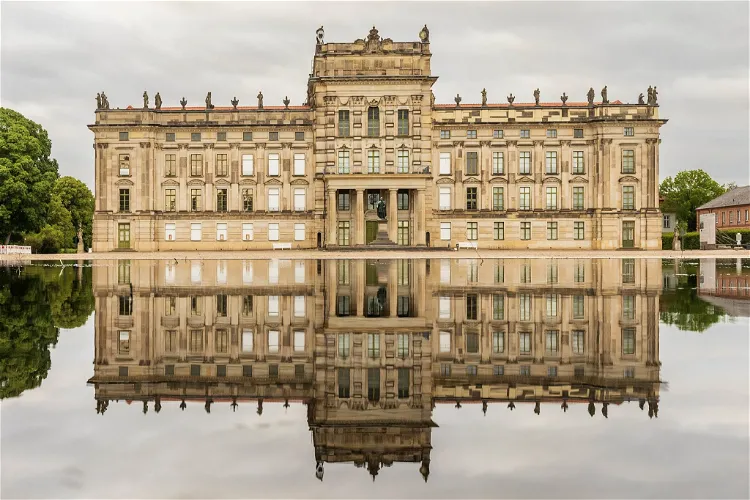
Ludwigslust Palace
LudwigslustLudwigslust Palace, situated in the city of Ludwigslust in Mecklenburg-Western Pomerania, Northern Germany, has a rich history that dates back to its original use as a hunting lodge. This historical context adds a unique charm to the palace, making it an interesting destination for tourists who appreciate history and architecture.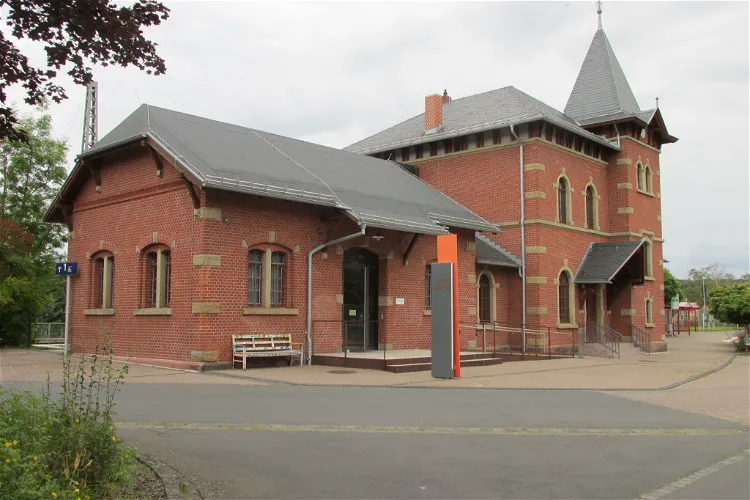
Museum Friedland
FriedlandThe Museum Friedland, situated in Friedland in Lower Saxony, Germany, is dedicated to researching, preserving, presenting, and communicating the history of the Friedland border transit camp. This camp has been operational since 1945 and has seen the passage of over four million people, including refugees, displaced persons, released prisoners of war, late repatriates, and asylum seekers from various parts of the world.- 42
Uns lütt Museum
DargunThe Uns lütt Museum, also known as the Heimatmuseum Dargun, is located in the former guesthouse of a monastery in Dargun, Mecklenburg-Vorpommern. The address is Schloss 13 / Klosterdamm 6. This historical building, which dates back to the 14th century, has been repurposed to house a museum that showcases the local history and culture.